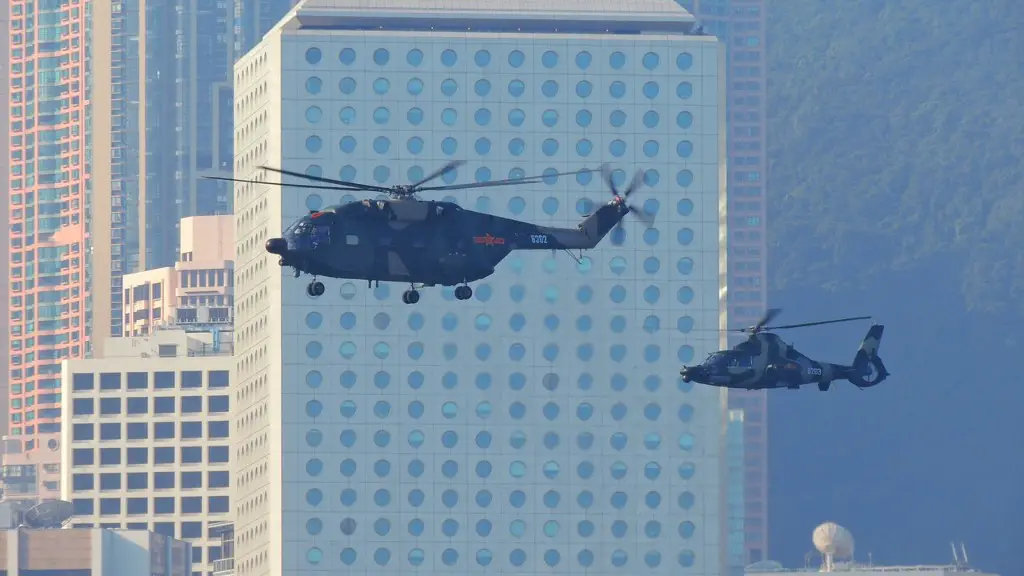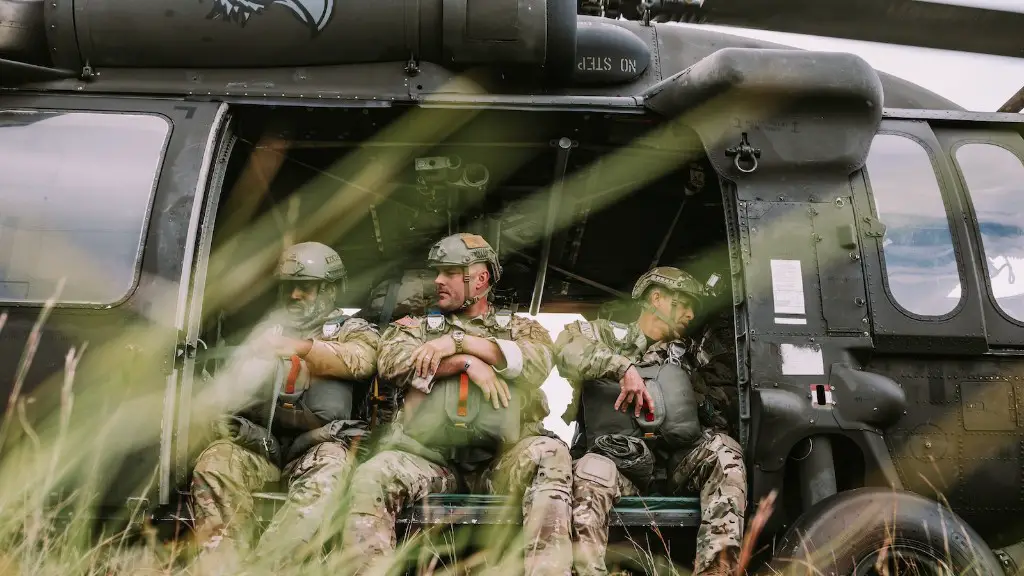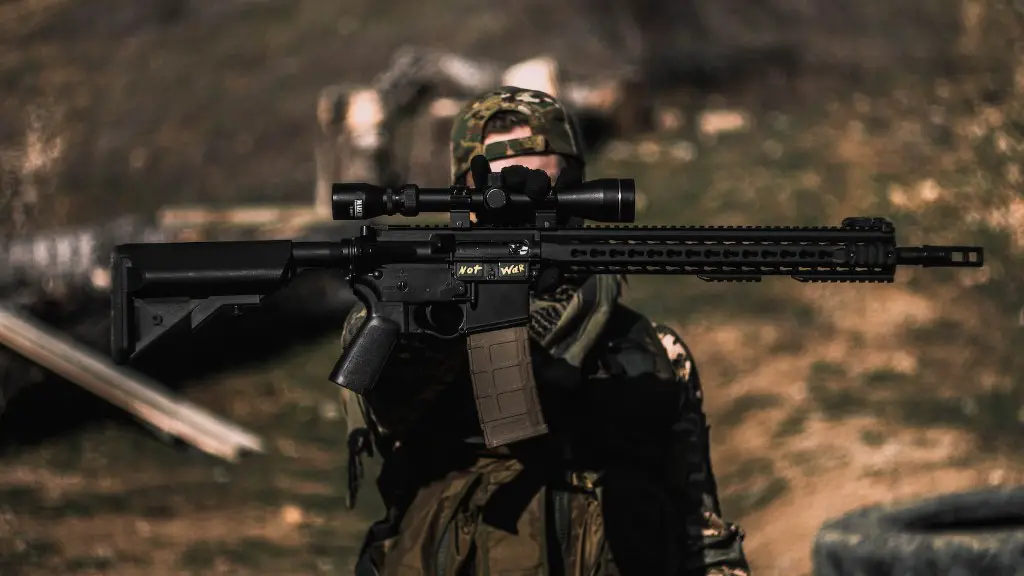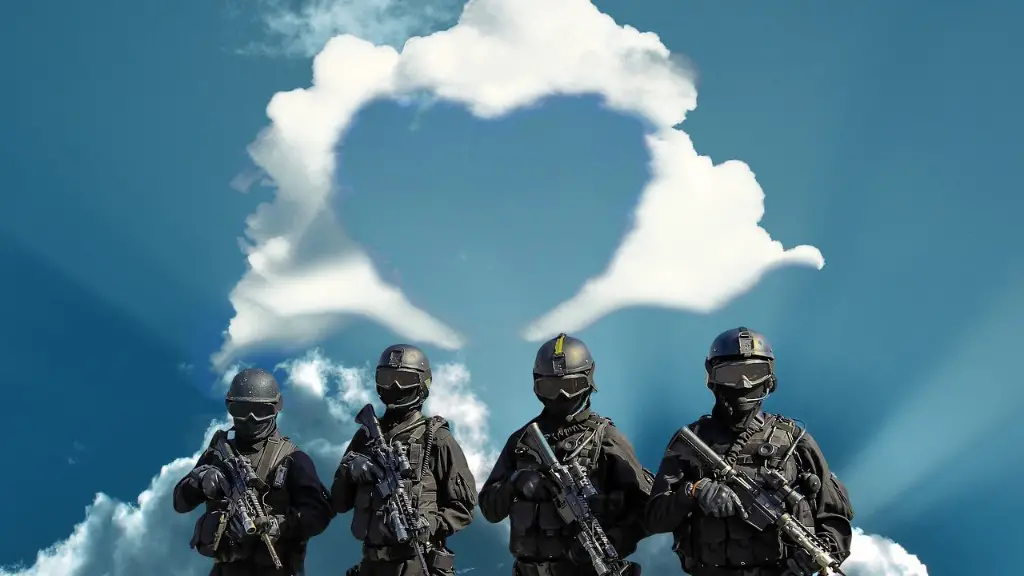What makes the Chinese Army weak? This is a question that has been asked since the establishment of the People’s Republic of China in 1949. Despite being the largest standing army in the world with over 2 million active personnel, the Chinese Army has often been unable to meet its international military objectives, particularly when compared to more modern and well-equipped militaries..
Analysts point to a number of factors which they believe contribute to the relative weakness of the Chinese Army. Firstly, the Chinese Army is vast in numbers but lacks tactical sophistication and advanced technology, such as accurate long-range guided missile systems and modern aircraft. This puts Chinese forces at a strategic disadvantage in a potential global conflict.
The extensive bureaucracy of the Chinese military is another point for consideration. It is difficult for successive commanders to make rapid decisions when organizing the army requires bureaucratic forms to be filled in and signed off. This can lead to slow reaction times in an emergency, which provides an edge to more agile and flexible forces.
Another issue concerning the Chinese Army is budget constraints and access to modern military technology. Many believe that the Chinese Government focuses much of its military budget on diplomatic, ideological and political goals and neglects other important areas.
Critics also point to a lack of troop experience in terms of real combat situations. Despite conducting regular military exercises, actual conflict experience is something which the Chinese Army has lacked. As a result, the training and development of troops has been compromised.
In conclusion, the Chinese Army is a force to be reckoned with. However, to become a truly powerful and effective fighting force, it must make significant improvements to its training, technology and involvement in international conflict scenarios.
Leadership Style
The leadership style of the Chinese Army is a factor which cannot be ignored when considering why it is weak. Chinese commanders are often expected to adhere strictly to the party line handled down from the highest levels of power. This leaves commanders with little discretion or authority to exercise their tactical acumen or strategy when needed.
The top-down structure of the Chinese Army also means that officers seldom receive objective and valid feedback, which can lead to failure in terms of morale and tactical awareness. There appears to be a strong aversion to change, even when it may be seen as necessary or beneficial. Furthermore, new and innovative approaches to military strategy and tactics are often seen as taboo by Chinese leaders, which can dating back to Confucian ideology and culture.
Finally, it has been argued that the Chinese Army has failed to recognize and capitalize on opportunities that may improve their international standing. This can be seen in the modern-day when other countries have developed more sophisticated and advanced weapons systems, whereas the Chinese have lagged behind.
World Politics
World politics and China’s regional military objectives can also play a role in the relative weakness of the Chinese Army. China often sees itself as a superpower, but international politics and shifting alliances do not always sit in China’s favour, which can often put it at a disadvantage.
Moreover, many of China’s neighbours are actively supported and backed by more powerful countries, such as the United States, Russia and India. For example, China’s relations with India are often tense due to a number of boundary disputes. India is actively backed up by the US, providing it with a distinct military advantage over China.
More recently, China has become embroiled in a number of regional disputes, such as the South China Sea. The tensions between China and other countries in the region have increased, and it is believed that China’s military is not as prepared to face these challenges as it should be. This has resulted in a wider perception in the international community that the Chinese Army is weaker than it should be.
Chinese Perception
China’s lack of a modern army may be seen as a contributing cause of its ongoing struggles, but the inside perception of the Chinese Army is one of pride, strength and resilience. Despite the weaknesses discussed earlier, there is a widespread perception that the Chinese Army is a powerful and effective force and that it can still win wars. This perception is one of the main factors preventing China’s government from making sweeping changes to its military.
Furthermore, the Chinese Army is seen by many in China as a symbol of national strength and pride. This prevents the Chinese government from making significant changes to the military as it would be seen as a sign of accepting defeat. As a result, the Chinese military is largely unchanged and the issues discussed earlier remain unresolved.
Political Interests
The political interests of the Chinese government are also a key contributing factor to the relative weakness of the Chinese military. It is widely believed that Chinese leaders do not want to see a strong and independent military as this could pose a threat to their own political power and influence.
Chinese leaders also recognise that a strong military would require increased budget expenditure and higher wages for personnel, something that the government is often reluctant to do. As a result, the Chinese military remains relatively weak, both in terms of numbers and sophistication.
Similarly, the Chinese government has traditionally had a more pacifist approach to international affairs, preferring to take a more measured and diplomatic stance when dealing with other countries. This often puts the Chinese at a disadvantage in scenarios where militaries become involved in disputes.
International Relations
China’s international relationships can also play a role in its position as a ‘weak’ military compared to the rest of the world. China’s allies and partners are often not as powerful and do not offer China a tactical advantage, as other countries such as the US do. This, in turn, means that China is often at a disadvantage in international conflicts, as it does not have a powerful or well-resourced ally to rely on.
Furthermore, China’s relations with the US and other Western countries in the international arena has been relatively poor in recent times, meaning that military cooperation and aid is often not forthcoming. This further weakens the Chinese military as it does not have access to the same resources, materiel and technological advancements as other nations.
The Chinese Army is a formidable force, but one that is still relatively weak compared to other militaries around the world. Its weaknesses can be mostly attributed to a lack of advanced technology, troop experience, international ties, and changes in government policies. However, despite its weaknesses, the Chinese Army remains a powerful force and is not to be underestimated.





